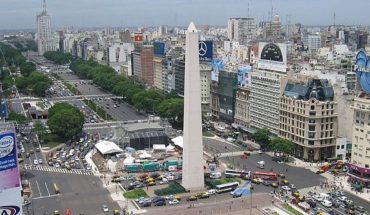If the right conditions are created for its timely development, including the definition of affordable costs of the radio spectrum, 5G technology can be an opportunity to transform the economy of Latin America, said Raúl Romero, director of Nokia for the North Region of Latin America. Latin American countries cannot be out of 5G because this is going to change the economy and they would be left out of many of the advantages of this technology,” said the executive, on the impact that fifth-generation networks will have on the growth of productivity and competitiveness of industries and verticals. In an interview with DPL News, Romero explained that the maximum potential of 5G networks will be reflected in industries, as a range of applications and use cases will be generated for sectors such as manufacturing, the oil industry, smart cities, health and the metaverse, among others. The specialist believes that the region is already ready for the deployment of 5G, especially some countries where commercial networks have already been implemented, such as Chile, Mexico, Uruguay and Brazil, and due to the spectrum tenders that have been made, as well as others that are underway. In any case, he warned that the pace at which the development of 5G moves depends on two main factors: one of them is public policy, that is, that the Government has the vision and is convinced of the relevance of promoting the adoption of this new technology. There are some governments that are already clear about their duty to promote the deployment of 5G, but others are still undecided or have not shown decisive interest, the executive said. In addition, he stressed that Colombia, for example, “has a clearer picture than others. The presidential advisor for the Digital Transformation of the Government of Gustavo Petro, Saúl Kattan, and the ICT Minister of Colombia, Sandra Urrutia, are clear on the subject and that they are not questioning whether or not they should make an auction: they already know that they have to do it as soon as possible. ” On the other hand, the director of Nokia for the North Region of Latin America considered that the second factor is the price of the spectrum. “The million-dollar question is how to value that spectrum and understand that it cannot be with a collection objective, but that it has to be really with the objective of developing telecommunications infrastructure,” he said, while highlighting the use of 5G in the evolution of industries. In that sense, Romero warned that the efficient and profitable deployment of 5G networks and related use cases will depend to a large extent on the costs of the radio spectrum that are established in the tenders. What operators are always most concerned about is the cost of spectrum, rather than the cost of the technology. There are issues that facilitate the process and that is that part of that technology already exists, such as towers. In fact, several of our customers have already left the networks ready so that it is only to incorporate a card and 5G is enabled, “he said. He added: “I think it depends more on the cost of spectrum … It is important to have reasonable prices in the Latin American spectrum, so that there are no more delays in the deployment of the 5G network in the region.” In turn, the executive said that governments “have to be facilitators (…) Do not stay in the slowness of thinking, thinking and thinking without doing anything. There are already countries that have shown speed and have done quite well as the case of Brazil, Chile and the Dominican Republic. They quickly understood that it was an important issue for the country and accelerated it.” Romero details that governments must be facilitators in everything: in availability and in the cost of the spectrum, as well as facilitators in the laws so that it is not so complicated for operators to implement a new site, put antennas or put all the technology that is needed. The industry is exploring new technologies to make building 5G networks more efficient. That is why the Nokia executive highlights the importance that is gaining the adoption of solutions that improve the energy efficiency of network elements, such as towers or base stations. On the other hand, Open Radio Access Network (Open RAN) solutions are presented as an opportunity to reduce deployment costs, accelerate network expansion and create new business cases linked to 5G that will provide greater added value to users and industries. Whichever path is chosen, Latin America cannot stop moving towards technological modernization. In this regard, Romero affirms that, if it remains behind, the region can deepen social and technological gaps. Investments are They target markets with favourable conditions, not unattractive environments. Likewise, those countries that are left out of 5G will also have missed an important opportunity for digitalization and economic growth. Source: DPL news
5G technology can be an opportunity to transform Latin America’s economy
January 11, 2023 |





